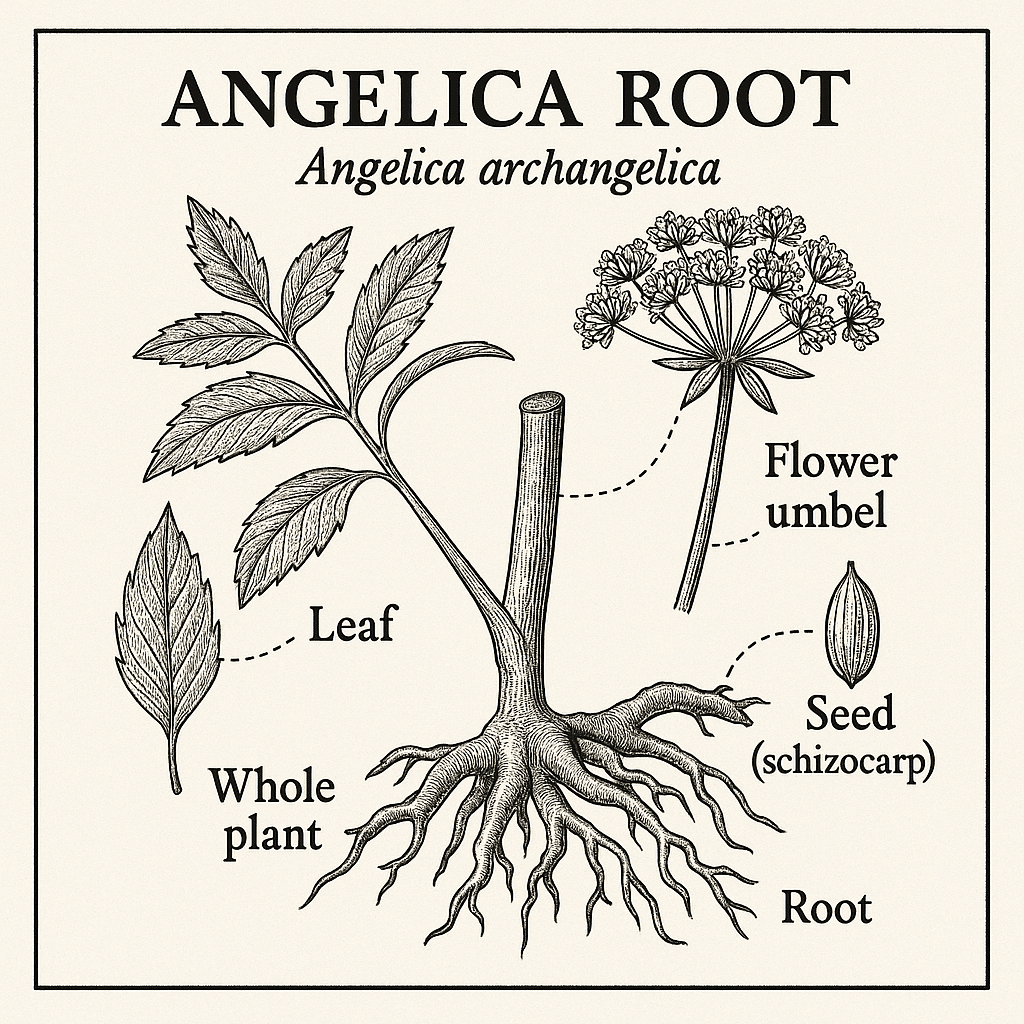Angelica Root
Angelica archangelica L. — Materia Medica

Snapshot
Evidence is primarily traditional and preclinical. In-vitro/animal data suggest spasmolytic, carminative, and mild antimicrobial effects from the volatile oil and coumarin fractions; robust human clinical trials are limited. Use claims should be conservative and educational.Angelica root (Angelica archangelica).
Parts used: Root (primary); seed (aromatic); leaf (culinary).
Preparations: Decoction; tincture; syrup.
Primary actions: Aromatic carminative; antispasmodic; expectorant; digestive (stomachic); mild diaphoretic; cholagogue.
Systems: Digestive; Respiratory.
Overview: A warming, aromatic bitter from the Apiaceae used traditionally for sluggish digestion, gas, cramping, and damp, cold respiratory patterns with thick mucus. Root contains essential oils (e.g., monoterpenes), bitter principles, and coumarins/furanocoumarins that contribute to its carminative and expectorant effects.
Identification & Harvest
Biennial; harvest roots in late first year or early second spring before bolting; dry promptly to preserve aroma.Preparations
- tea-infusion
- decoction
- tincture
- powder
- syrup
Safety
Avoid in pregnancy (traditional emmenagogue/uterine-stimulating concern). Potential photosensitivity from furanocoumarins—limit UV exposure with high intake/topical use. Possible interactions with anticoagulants/antiplatelets (coumarin content). Use caution with reflux/active ulcers (bitter/aromatic). Contraindicated with known Apiaceae (carrot/celery) allergies. Educational use only; not medical advice.Related Research
No studies yet.
References
- EMA/HMPC. Community herbal monograph on Angelica archangelica L., radix (Angelica root). European Medicines Agency, HMPC.
- ESCOP. ESCOP Monographs: The Scientific Foundation for Herbal Medicinal Products — Angelicae archangelicae radix. European Scientific Cooperative on Phytotherapy.
- Commission E. Therapeutic Guide to Herbal Medicines — Angelica root (Angelicae radix). German Commission E monograph.
- British Herbal Pharmacopoeia (BHP). Entry for Angelicae radix. British Herbal Medicine Association.
Educational content only; not medical advice.
